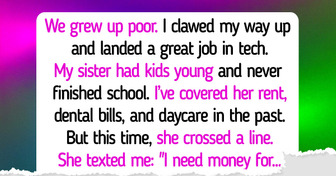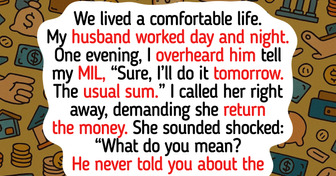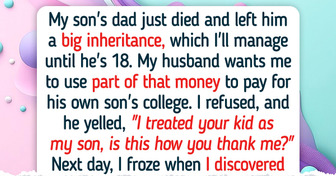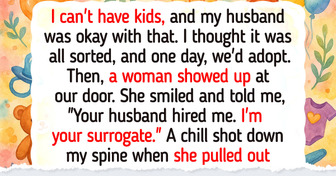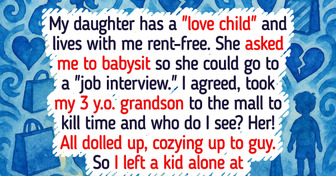I Refuse to Sacrifice My Own Needs for My Sick Stepchild

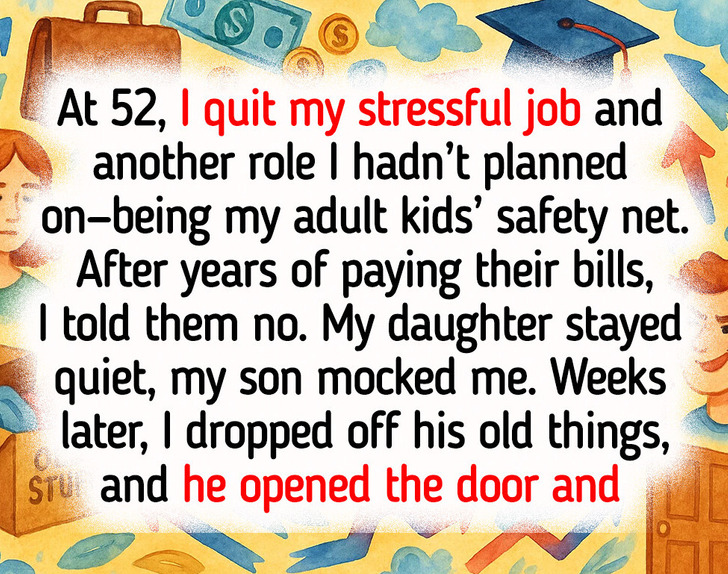
A reader wrote to us about the moment she decided to step away from her high-stress career — and from an even heavier burden: constantly acting as the family bank for her grown kids. Her story shows just how hard it can be to set financial boundaries at home, and the emotional fallout that often comes with it.

At 52, I walked away. Not from life — but from the endless roles I’d been playing. I left my demanding job, the late-night emails, the endless commuting. I thought I was freeing myself from corporate burnout. I didn’t realize I was also resigning from another job: being the family safety net.
For years, I paid for everything my grown kids couldn’t — or wouldn’t. Emergency credit card bills, forgotten phone payments, “just until next payday” transfers. This time, I told them no.
“I can’t keep funding your lives,” I said. “It’s time you handled things yourselves.”
My daughter went quiet, then said, “So... do we still do our Sunday walks?” My son snorted. “What’s this, early retirement? Or are you just tired of us?”
When I didn’t back down, his face hardened. “Wow. You’re really going to let me sink? Some mom you are.” He walked away without looking back.
Weeks later, I stopped by his apartment with a few boxes of childhood keepsakes. His roommate opened the door. My son appeared behind him, rolled his eyes, and muttered, “Oh. It’s her. The quitter.”
I left the boxes on the porch and didn’t reply.
Now my mornings are mine. I sip tea on the balcony. No buzzing phone, no emergency transfers. The quiet used to feel like rejection. Now it feels like freedom.
I gave my kids everything I had. The day I finally said “no,” I wasn’t Mom anymore — I was the villain. But if peace makes me selfish, I’ll take selfish every time.
Thank you for sharing with us!

It’s tough to watch your adult child struggle financially. Every instinct tells you to step in—pay the bills, lend money, even offer a place to stay. But constant rescuing can backfire, making it harder for them to become independent.
The key is balance: offering support without enabling. Here’s how some parents have managed it, along with expert advice to protect both your finances and your relationship.
1. Ava’s job loss and overdue bills
When 28-year-old Ava lost her marketing job, she called her mom in tears—overdrawn account, late rent, unpaid utilities. Mom’s gut reaction? Pay it all off. But instead, she offered one month’s rent on one condition: Ava had to send out 5 resumes a week and cut non-essentials like takeout.
✅ Expert tip: Offer conditional help—tie it to specific actions (job hunting, budgeting) so the support moves them forward.
2. Nathan’s debt spiral
Nathan, 32, loved spending—new gadgets, weekend trips, dinners out. The result? Massive credit card debt. Dad had bailed him out before, but this time he sat him down to build a budget, explore debt consolidation, and sell unused luxury items.
✅ Expert tip: Swap quick fixes for financial education—teach budgeting, saving, and debt management so they can avoid repeat crises.
3. Liv’s overextended car loan
Liv, 25, loved her new car... until the payments crushed her budget. Instead of covering her missed payments, her parents helped her call the lender, explore refinancing, and pick up weekend work.
✅ Expert tip: Guide them toward problem-solving—negotiating with lenders, finding extra income—so they can handle future bumps.
Set firm boundaries: Decide upfront how much you’ll help—and follow through.
Don’t give in to guilt: Sometimes saying “no” is the most caring choice.
Make help accountable: Ask for a budget or job search proof before offering money.
Bring in an expert: A financial advisor can teach lessons family talks can’t.
Keep it short-term: One-time support is okay, but avoid creating long-term dependence.
Support is powerful when it teaches independence. What is the best financial gift you can give your adult child? The confidence—and skills—to thrive without you.
I Refused to Give My Inheritance to My Kids—They Plotted Against Me


